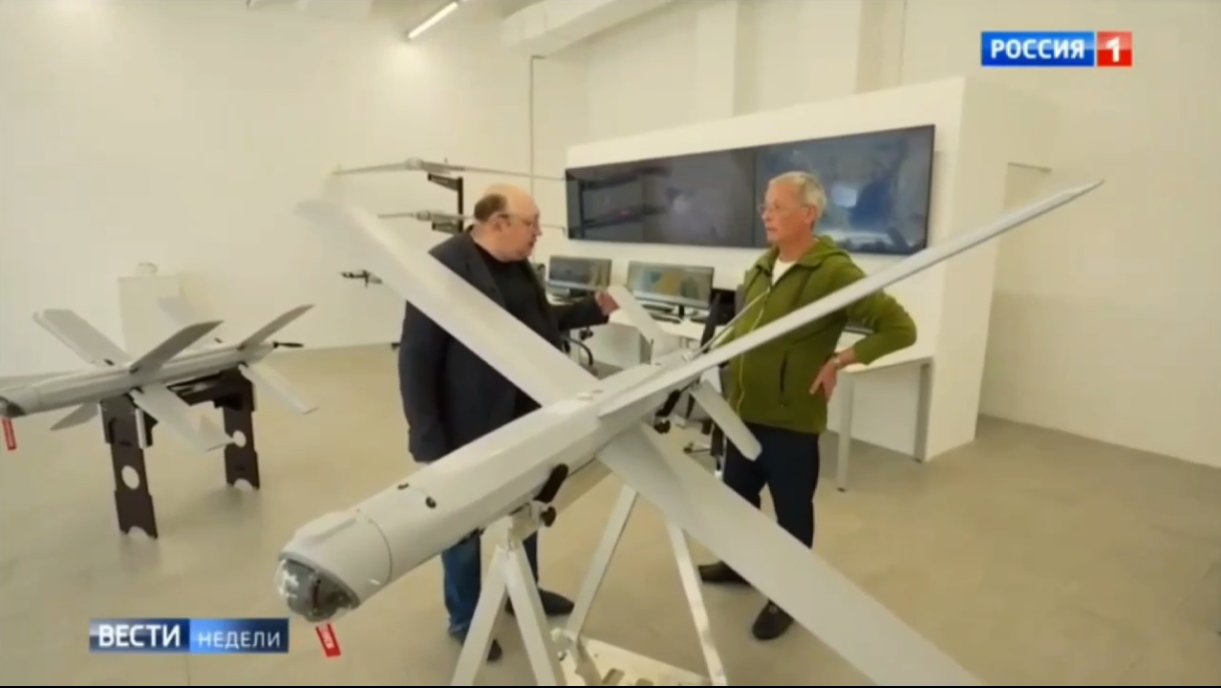The Ukrainian military has successfully shot down a Russian Lancet loitering munition with an FPV drone, as seen in a video released by the Ukrainian forces.
The footage, shared by public figure and volunteer Serhiy Sternenko, was filmed by soldiers of the 11th Mykhailo Hrushevsky Brigade, part of the National Guard’s Southern Operational Unit.
Sternenko, who is raising funds for the “Heavenly Russifier” project to acquire FPV drones to combat Russian UAVs, highlighted the detection of a new variant of the Lancet drone, known as the Izdelie-51.
This particular model, capable of flying over 50 kilometers, was shot down before it could carry out its intended attack. “The drone wanted to attack one of our facilities, but not today, scum, not today,” Sternenko remarked.
The spokesman for the Tavria Joint Task Force, Dmytro Lykhoviy, confirmed to the Ukrainian media outlet Novynarnya that Russian Lancet attack UAVs are indeed shot down by Ukrainian FPV drones.
Interception of the Russian Lancet loitering munition with the help of FPV drone https://t.co/0eIfPyhdXJ pic.twitter.com/ib0HAfR8M2
— Special Kherson Cat 🐈🇺🇦 (@bayraktar_1love) September 5, 2024
He claimed that two successful interceptions took place on September 3, one in the Kherson and another one in the Zaporizhzhia region.
Drone warfare expert David Hambling praised Ukraine’s growing proficiency in drone interception. “Tracking and plotting a course to hit a Lancet in flight, as opposed to a loitering reconnaissance drone, is quite a challenge. But the problem may have been solved, and we will see a lot more of these,” Hambling stated.
This marks yet another instance of Ukrainian forces intercepting enemy drones with FPV technology. In June 2024, an operator from the SIGNUM unit of the 93rd ‘Kholodnyi Yar’ Separate Mechanized Brigade successfully shot down a Russian Lancet kamikaze drone using similar methods.
Last month, Ukraine revealed that its interceptor drones had downed more than 100 Russian reconnaissance UAVs in recent weeks, including models such as the Orlan-10, ZALA 421-16E, and Supercam S350.
These drones, often used by Russian forces for reconnaissance and artillery coordination, were intercepted with the help of modified drones purchased through volunteer donations under the “Heavenly Russifier” project.

Intercepting Suicide Drones With FPV Drones
Ukrainian forces are increasingly deploying FPV drones to take down Russian UAVs. These versatile drones can be used for real-time surveillance, reconnaissance, and, more recently, intercepting enemy drones.
Controlled by operators who steer them via live video feeds from onboard cameras, FPV drones offer precise maneuverability. In Ukraine, they’ve been modified to pursue and engage enemy UAVs, demonstrating their flexibility in aerial combat.
Nevertheless, FPV drones are capable of operating as kamikaze drones; however, their payload capacity is restricted, and they possess a shorter flight duration, primarily due to their emphasis on speed and maneuverability.
On the other hand, suicide drones, such as the Lancet, are designed with a single, destructive mission: to crash into a target and explode.
These drones can be either autonomously programmed or operated manually to engage enemy assets such as vehicles, buildings, or personnel. Upon acquiring a target, they execute a dive maneuver, releasing an explosive payload upon impact.

Meanwhile, Russian media has dismissed reports that a Ukrainian FPV drone successfully intercepted a Russian Lancet loitering munition, raising doubts about the authenticity of the footage released by Ukrainian forces.
According to local reports, “Given that the Lancet’s speed significantly exceeds the maximum capabilities of FPV drones, it is possible that the footage published by the enemy was created using computer graphics.”
In an article, the media outlet remarked, “As part of the Russian Armed Forces’ special operation in Ukraine, the highly effective use of Lancets and reconnaissance drones became a real triumph of Russian military engineers. In particular, a bundle of reconnaissance drones Z-16 or Z-20 with loitering munitions ensures successful counter-battery warfare by Russian army units.”
The report noted that the latest modification arms the drones with thermal imaging, enabling nighttime operations.
Additionally, the guidance system has been upgraded, and its range extended. The developers have also incorporated measures to allow effective performance under intense electronic countermeasures deployed by Ukrainian forces.
The Russian media further claimed that the Izdeliye-51 and Izdeliye-52 drones continue to strike Ukrainian military equipment, including advanced Western air defense systems, with precision along the front lines and in rear positions.
The outlet concluded that, given these capabilities, the authenticity of the Ukrainian video was highly questionable.
- Contact the author at ashishmichel(at)gmail.com
- Follow EurAsian Times on Google News




